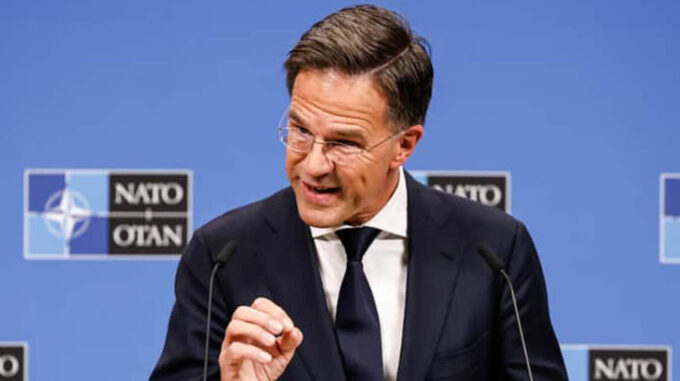NATO Secretary General Mark Rutte emphasized: Ukraine’s accession to the Alliance is a long-term commitment for the entire bloc

Clear statements have once again been made by NATO regarding Ukraine’s security strategies and integration ambitions. During the Bucharest Nine summit and meetings with Nordic countries, NATO Secretary General Mark Rutte confidently expressed the position that Ukraine’s accession to NATO is an unshakeable and agreed-upon matter among all 32 NATO member countries. At the same time, he emphasized that this process cannot be part of peace negotiations between Kyiv and Moscow, as Ukraine’s security is a matter of long-term strategic commitment and should not be compromised through negotiations. Rutte’s statement responded to an explicit Russian call to halt NATO’s expansion, which was voiced in discussions about possible steps to reduce or freeze Ukraine’s integration process. In his speech, he stressed that the decision on Ukraine’s NATO membership is not dependent on a specific date but is an irrevocable commitment by all 32 allies. “As for Ukraine, there has been a clear position from all allies—this is an unchanging strategy, and it is incorporated into long-term plans. This is not a matter that can be resolved through peace or compromises; it is a path we are already building—creating a bridge to Ukraine’s security and Europe’s future,” Rutte noted. Earlier, in an interview with ABC News, former U.S. official Keith Kellogg complemented this position—he stated that the United States does not oppose discussing potential restrictions on NATO enlargement. According to Kellogg, Washington understands and respects Russia’s concerns regarding NATO expansion and is ready to engage in open discussions about possible limits on admitting new members up to the borders of the aggressor country. “We have repeatedly declared that we consider Russian arguments on security. It’s not just about Ukraine. Russia mentions Georgia and Moldova as well. We are ready to discuss potential limitations of NATO’s expansion towards their borders—this is their security interest, and we recognize that,” Kellogg said. Of course, such a position provokes considerable satisfaction in Moscow, which has long called for curbing NATO’s military and political influence in Eastern Europe. The Kremlin has long viewed Ukraine’s and other neighboring countries’ accession to NATO as a direct threat to its security and seeks to impose its viewpoint through diplomacy and political pressure. NATO’s stance remains unchanged: for Ukraine and other potential candidates, security and stability are a strategic priority that cannot be questioned in their pursuit of European and transatlantic integration. At the same time, discussions about possible adjustments to expansion policies do not halt the process, which, according to experts, is a long-term guarantee of security and shapes the future of European security architecture. Thus, the position of leading European and American politicians boils down to this: Ukraine’s accession to NATO is not a matter of short-term political deals but a long-term commitment to collective defense and security, confirmed by the entire system of mutual support within the Alliance. While talks about possible restrictions on expansion continue, this path remains unchanged, and Ukraine’s move towards European security has received firm support from the highest leaders of Western countries.

